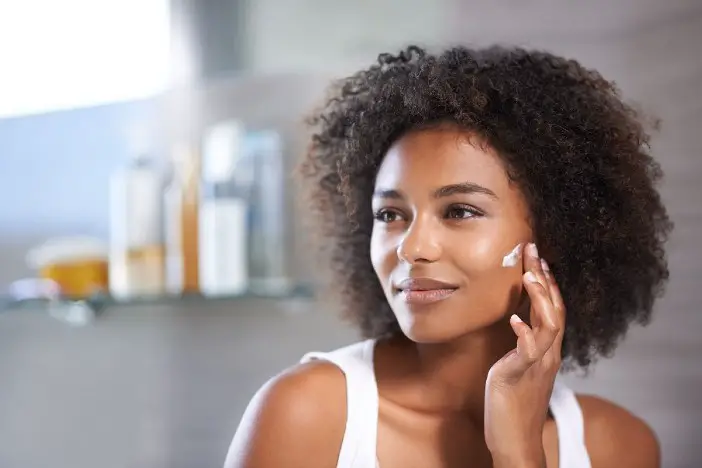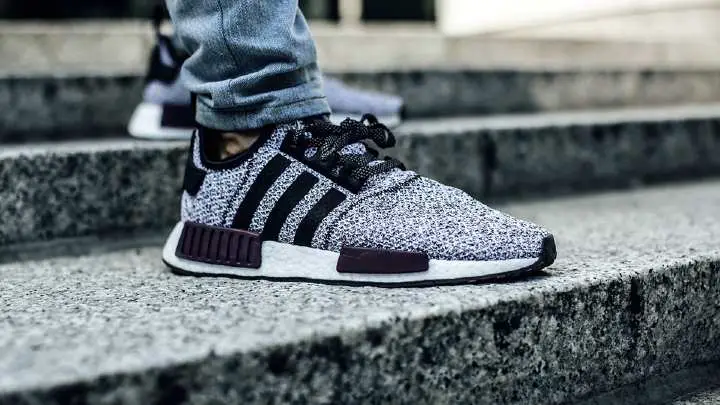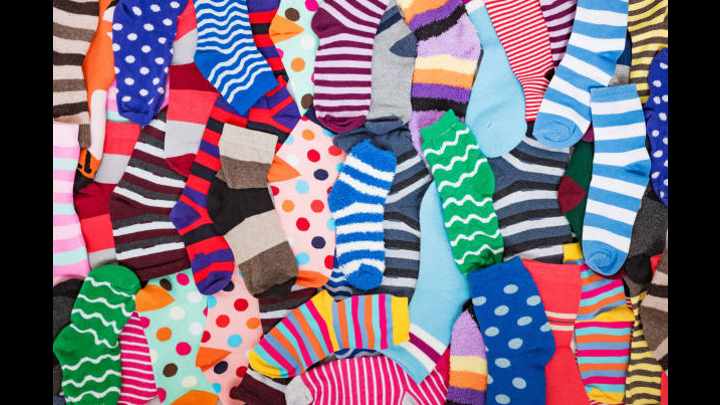Beauty is dynamic. It changes as we age.
Also, as we age, the skin cell turnover cycle keeps reducing, which in turn reduces the elasticity and youthful glow of our skin.
This is where skin products and formulas come in. Retinol is one of such ingredients used to rejuvenate the skin and reduce aging effects.
This compound has found its way into many skincare routines to combat aging effects and keep the skin supple and firm.
The ingredient is often called the miracle skincare ingredient. This is because it is highly potent and deeply effective in working on problem issues like acne, aging, and sun damage. This is why it is popular in the skincare market.
Also, the product is known for being a derivative of Vitamin A, but unlike other derivatives, retinol is over-the-counter (OTC). That is, it can be bought without a prescription. And among the vitamin A derivatives that are OTC, retinol provides the strongest effect.
However, this is double-edged. Retinol is effective, but it can have side effects too if not used properly. Shocking right?
This is why I would be treating retinol in full, to highlight the benefits, side effects, and how to correctly use retinol in your skincare routine.
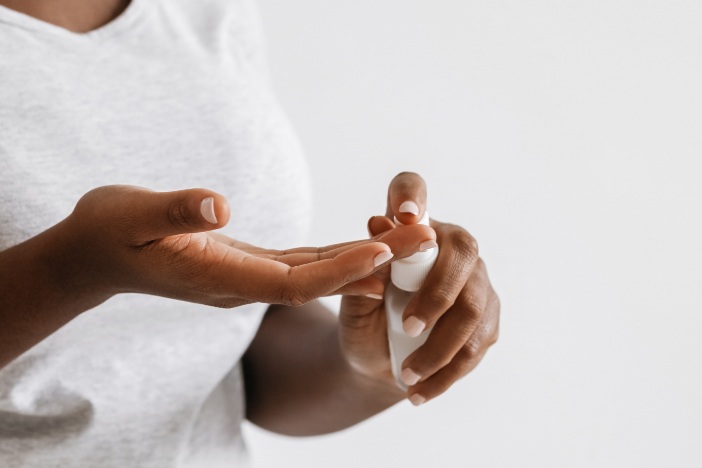
What is Retinol?
Retinol is a type of vitamin A. Touted as the ultimate antiaging miracle worker, the component works to glow the skin and make it smoother.
According to dermatologist Shari Marchbein, M.D., “retinol helps to treat acne, blackheads, and clogged pores by reducing the stickiness of the cells that clog the pores. It can also be used to improve skin cell turnover and regeneration.”
Also, it is a form of retinoid, and its chemical name is all-trans-retinoic acid. Retinol helps to increase collagen production, aiding skin repair itself and speeding up the growth of healthy, new skin cells.
Furthermore, it shrinks large oil (sebaceous) glands. All of these things help reduce the appearance of fine lines and wrinkles.
The component is one of the most popular ingredients used today for skincare purposes. This supplement in products makes your skin look younger and removes signs of aging.
Although it’s a vitamin A derivative, it should not be confused with Vitamin A when applied to your skin. Retinol is active whereas Vitamin A is not.
Retinol oil can penetrate the skin easily. This is why it can be used to treat skin problems better than Vitamin A could ever do individually.
How does Retinol Work?
Retinol works in a specific way, unlike the other antiaging components. Rather than remove dead skin cells, the small molecules in retinol go deeper into the dermis. This is the second layer beneath the epidermis.
Once it gets to the middle layer, the compound converts to retinoic acid then it works to eliminate or neutralize the free radicals. This leads to a boost in collagen production.
Also, it creates a plumping effect, which makes the skin look firmer and reduces the appearance of wrinkles, fine lines, and wide pores.
Furthermore, the skin tone is also improved, creating a glow from within, and the skin’s texture is brighter. This means retinol works to improve the skin complexion. This leads to increased benefits when the ingredient is used rightly.
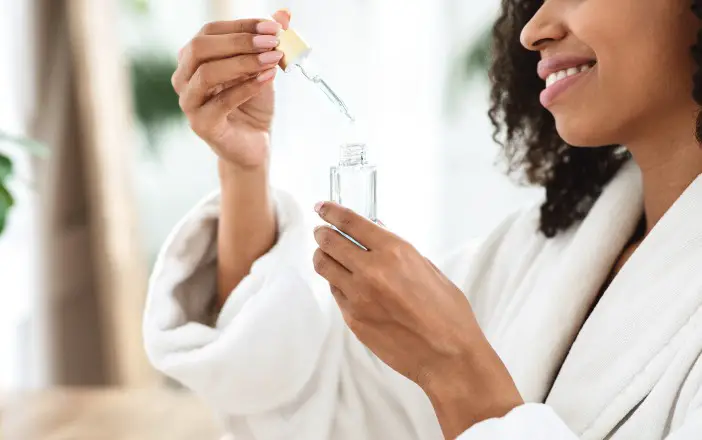
Benefits of Retinol
If the thought of using an over-the-counter antiaging cream with retinoic acid makes you cringe, I understand.
Usually, antiaging creams are filled with harsh chemicals, which can cause side effects. Luckily, with retinol, it’s a different story.
Retinol is not only derived from vitamin A but also collagen, making it a safe and natural alternative to help reduce wrinkles. It is even more effective than prescription products containing tretinoin (Retin-A).
Below we will go into what retinol is and the benefits of it when using on your skin.
1. Get even skin tone
Skin that is evenly toned looks healthier and more radiant. Getting even skin tone is an incredible benefit offered by Retinol. It helps in delivering smoother, softer, and younger-looking skin.
The component not only provides benefits such as smoothening fine lines but can help decrease wrinkles and the appearance of brown spots.
The retinoid compound actually helps rebuild collagen lost from sun damage and other environmental factors.
2. Reduce the appearance of fine lines and wrinkles
As we mature, our bodies produce less and less collagen. Over time, this causes wrinkles to form on the face and body. One of the best antiaging ingredients for your skin is Retinol.
Retinol increases cell turnover, which in turn will make your skin look younger. This is because the dead skin and environmental debris on your skin will be sloughed off by newer skin that is younger.
It also stimulates collagen production. This can help restore lost elasticity and firmness to your skin, thereby reducing fine lines and wrinkles.
3. Minimize age spots
Many people have age spots on the face, neck, and hands. These pigmented and brown patches that we can see on the skin are primarily a result of sun damage.
It is possible to get rid of age spots by using a product that has retinol as an ingredient. The compound is found in over-the-counter products like creams, lotions, and eye-gel. Furthermore, it is one of the safest ways to diminish age spots naturally.
4. Promote collagen production
Collagen gives your skin strength and elasticity. As we get older, our bodies produce less collagen causing our skin to wrinkle and sag.
Put simply, as we age, the delicate supporting our skins are weakened, and collagen production is reduced.
Retinol is one of the most effective skincare ingredients used to stimulate collagen production.
5. Fades acne scars
If you’re suffering from acne, and are looking for a product to reduce the appearance of scars, there is no better ingredient than retinol.
It is used to treat acne, remove dead cells from the surface of your skin. This formula also improves the appearance of fine lines and wrinkles and makes your skin look smooth and younger.
Furthermore, it helps to fade acne scars in the long run.
6. Stabilize skin’s moisture barrier
This ingredient helps to create moisture balance in the skin. It is scientifically explained as providing an indirect allosteric regulation of ceramide synthase.
Board-certified dermatologist Jessica Krant, M.D. says retinol helps to improve the rate of keratinocyte, which works on the outer layer of the skin. The element helps to keep the skin fresh and moisturized.
When old keratinocytes are exfoliated, new ones are emerged, keeping the skin always fresh and smooth.
Furthermore, it suppresses mitotic cyclins with faster degradation rates (CYCLIN D1). Retinol is a form of vitamin A that acts as a skin exfoliant.
It helps unclog pores and remove dead cells on the surface of the skin. This occurs while smoothing fine lines and wrinkles, and giving your skin an even appearance.
7. Intense pore size reduction
If you have ever had the occasion to learn about skin, you will know the reason for adult acne. It is a combination of old and new bacteria that enter your pores.
When enough time has passed, or after using over-exfoliants without protection, the skin can begin to lose its immune system and produce too much oil, which leads to acne.
Therefore, you can use retinol like a chemical exfoliator to improve the appearance of pores and the skin’s texture.
As a result, it helps reduce excess oil production and clogging of pores that can lead to breakouts and blemishes. This ingredient is effective in reducing pore size because it makes skin more sensitive to the effects of regular skin exfoliation from scrubbing or washing.
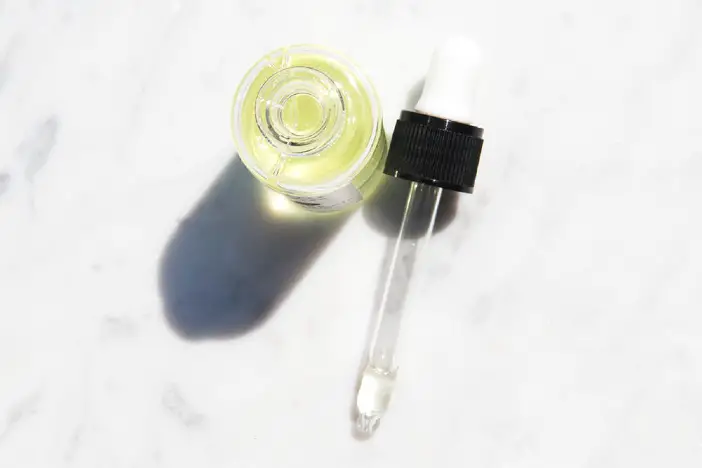
Possible Side Effects of Retinol
Although retinol has been proven to be effective, certain people may react to this product because of their skin type. Overuse of the compound can also cause the following side effects;
1. It may dry your skin
Dry skin is a side effect of using retinol. Retinol should never be used by itself. Instead, it must be accompanied by other ingredients which maintain the pH level of the skin to avoid dryness.
The main reason for dry skin caused by the compound is that it depletes the amount of oil in the skin.
2. It may cause peeling and redness
Peeling and redness are the most common side effects of retinol. To prevent them, here is what you can do: first, inform your dermatologist of any drugs that you are taking.
Retinol forms can make some drugs more toxic. Also, apply the ingredient at night. And remember to use sunscreen during the day.
3. It will lighten your skin
Retinol is a skincare product that can cause the skin to turn lighter or even much lighter. This is due to it removing a layer of your skin, which will reveal new skin underneath.
The reason this causes the skin to become lighter is that retinoids increase the rate at which one’s skin cells divide, and the natural pigment in our skin is called melanin.
As our body regenerates new cells at a faster rate, we lose older cells. This causes us to become lighter in skin tone.
4. It causes initial sensitivity to sunlight
If you naturally have reddish skin or freckles, you may not always be a good candidate for retinol creams.
The vitamin A derivative is photosensitive to sunlight and even sunburn if you have sensitive skin. Apply sunscreen while using retinol products to avoid burning or sensitizing your skin.
In addition, if you notice a change in the color of your eyes while using a retinol cream, discontinue the use of the product immediately.
5. Ingrown hair follicles
Ingrown hair follicles are a common side effect of using retinol products. It is an ingredient present in many skincare and skin health products.
Products containing the ingredient are used to treat a variety of problems. These include fine lines, acne, dark spots, aging skin, and more. However, it is important to keep in mind that these products may come with certain risks.
Some of the risks include the development of small wounds called syringomas. The term syringoma refers to tiny clusters of harmless-looking bumps that develop on the face or body. These bumps are generally harmless and have no malignant potential.
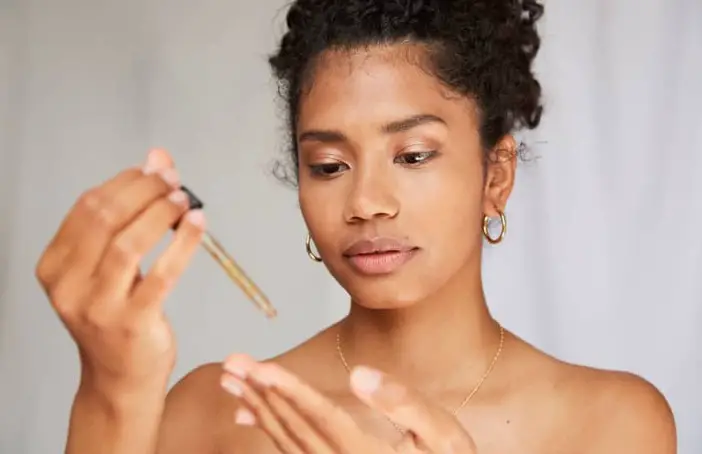
How to Use Retinol
Retinol is one of the most effective anti-aging ingredients in skincare products today. With regular usage, you’ll see the benefits immediately. However, using the compound is no simple task.
There are a lot of things that you need to consider before using it. Retinol needs to be used properly to get visible anti-aging effects!
Some of the tips of using retinol are;
1. Put the bottle in a dark place
When you’re using retinol creams, you should note a few things that determine the result of your retinol plan. One of them is storing the bottle in a proper place. You should put it in a dark place where light shouldn’t reach it often.
This is because when it’s exposed to light (UV or indoor), it converts to retinaldehyde, and then to tretinoin (active ingredient).
During this process is when it’s sensitive to light, so the dark bottle helps. Furthermore, this process also helps with its stability.
2. Use a sunscreen that has broad-spectrum UVA/UVB protection
Using a broad-spectrum sunscreen when using retinol can help to reduce the risk of darkening.
Retinol is great for brightening the skin, but it can also make your skin more sensitive to the sun. This can cause severe darkening especially if you have used an expired retinol product.
3. Use your retinol product at night
This is advisable because its effects are said to be even more potent at night when our skin is fully rested and nourished.
4. Use a gentle cleanser daily
Always keep your skin cleansed before and after using retinol. This would help open your pores to receive skincare products. Also, it would clear the dead skin cells lodging in the pores.
5. Do not use other exfoliates while using retinol products
Retinol has exfoliating components. This makes it unnecessary to use exfoliators while using retinol products. Scrubs and chemical exfoliators, along with retinol, could be harsh to the skin.
Therefore, you should avoid using other exfoliators with the ingredient to save your skin from harsh reactions and keep it glowing.
6. Stay out of the sun during the day
One thing about retinol is its photosensitivity. This means it is sensitive to sunlight. Therefore if you are using retinol during the day, make sure to use sunscreen with it. This would serve as a coat on your skin.
A better option is to use retinol during your nighttime routine. This would save you from having to expose the component to the sun, which may damage the skin further.
Best Retinol for the Skin
Retinol can come in several skincare forms. However, the most important are the moisturizer, serum, and cream. You need to use retinol as its best formula to get the effect you want on your skin.
Moisturizer
If you want to treat skin issues and antiaging, you would need retinol that can boost your skin and collagen production. For instance, InstaNatural Retinol Moisturizer is an anti-aging night face cream fortified with not only retinol but also vitamin C, hyaluronic acid, and green tea extract.
The moisturizer improves the look of skin wrinkles, dullness, and dehydration. Also, the moisturizer firms the skin, giving it a youthful glow.
Serum
Another retinol form is the serum. Serums are effective in giving quick treatment of active ingredients in high concentrations. They are fast-acting, which is why retinol mostly comes in serums.
CeraVe Retinol Serum is a fast-acting serum meant to treat post-acne scars, reduce large pores, and clear your skin tone. Also, it is effective and targeted at the skin look, making it look brighter and cleaner.
Facial Cream
Retinol can come in facial creams. This is a moisturizer but only meant for the face. It is used to clear skin imperfections on the face alone. This includes wrinkles, fine lines, and acne scars.
For instance, RoC Retinol Correxion Deep Wrinkle Anti-Aging Retinol Night Cream is a deep penetrating face cream used to clear the skin of wrinkles. The cream works by evening out the skin tone and making it look brighter.
Also, it helps to clear dark circles around the eyes, fine lines, and crow’s feet. It is the perfect night cream, and it does not clog the pores. This makes it an efficient product you need in your nighttime beauty regime.
Frequently Asked Questions
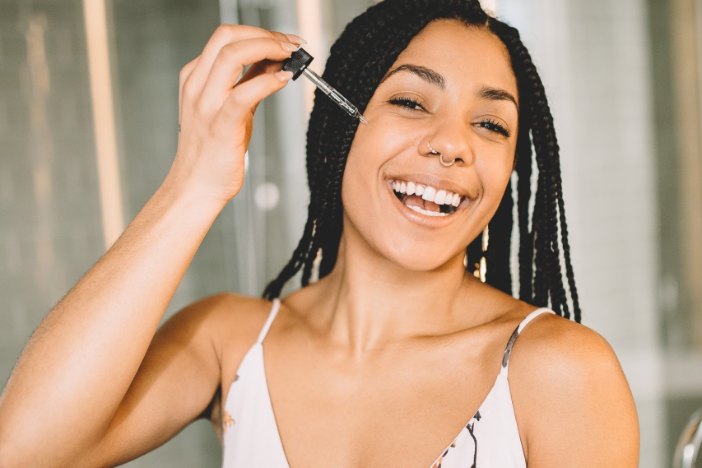
Is retinol the best ingredient to fight wrinkles?
Yes, it is one of the best wrinkle-fighting ingredients. Retinol is a derivative of vitamin A, which is one of the best ingredients to fight wrinkles.
It can also help replenish your skin’s cells and rebuild the foundation for healthier-looking skin.
Also, it can fight facial blemishes, as well as breakouts. The compound opens up the skin pores and helps eliminate impurities in the pores too.
Furthermore, it also helps even out the complexion and gives you a radiant glow without any make-up.
However, you must use retinol the right way to protect your skin from overexposure to vitamin A.
Why is retinol good for the skin?
Retinol is a form of vitamin A and has a good track record when it comes to anti-aging properties.
It can be used to clear up acne, remove spots, prevent wrinkles, and even lighten pigmentation. This an all-around superstar ingredient that you should keep in mind if you want to fight the signs of aging.
The compound stimulates skin cells to regenerate faster. If you look at your retinol in a bottle, it will probably look like an oil, and this is because it is actually an oil-soluble vitamin.
However, when the compound is put into a cream or lotion form (the opaque gooey stuff in the bottle), it becomes water-soluble. What this means is that it can be absorbed into our skin and actively work on regenerating it.
Essentially, this allows us to speed up the skin’s natural process of regeneration and repair. Nonetheless, this does not mean you should only be using retinol products on your skin.
Does retinol reduce fine lines and wrinkles?
Yes, it does. The aging of fine lines and wrinkles is mostly due to increased collagen breakdown.
As we age, the skin is exposed to environmental stress factors such as sun damage, dehydration, and exposure to pollution and smoke.
This results in the breakdown of collagen, which is responsible for the smooth appearance of our skin. Retinol is a vitamin A derivative popularly used in repairing damaged skin.
The vitamin A derivative has been found to boost cell turnover, which gives the skin a smoother texture by reducing fine lines and wrinkles.
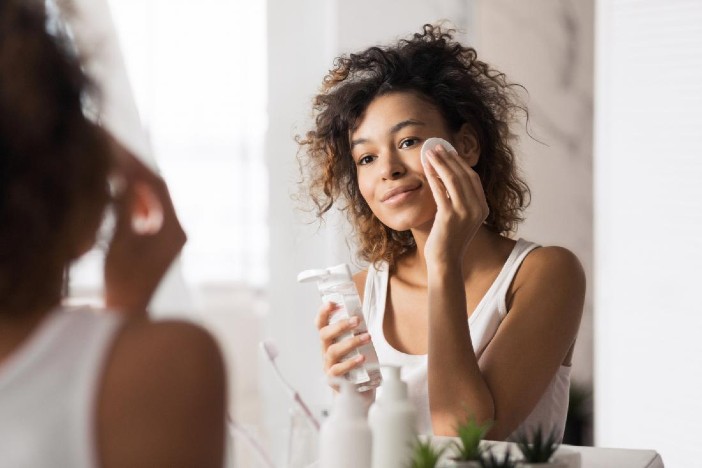
How does retinol work for antiaging?
Retinol is a vitamin A derivative that is often used as an anti-aging treatment.
Retinol’s effects can be attributed to its ability to replace your skin’s natural oils (the lipids). Replacing it can cause cell turnover in the skin.
This new layer of cells that forms will increase moisture within the skin and repair sun-damaged skin tissue. As a result, it leaves your skin more supple and youthful-looking.
How does retinol work when applied to your face?
Retinol is a form of vitamin A which is often found in many skincare products.
It’s known to be one of the best anti-aging compounds available today. However, there seems to be some confusion concerning how it works.
Our body produces naturally produces vitamin A. Also, we obtain it in small amounts from food and supplements.
This helps in the repair of damaged tissues, slowing down or reversing the effects of aging on the skin. Retinol also decreases wrinkles and skin sagging caused by aging.
One of the main advantages of topical retinol is that it can stimulate new cell growth. Retinol serum is a topical agent used to treat acne, fine lines and wrinkles, discoloration, and sun damage.
When should I start using retinol?
In your late 20s or early 30s.
If you are still in your early 20s, then you don’t need products with retinol or any other anti-aging active ingredient. However, you can start to prep your skin from your late 20s.
Collagen production starts to reduce from this age, and this affects cell turnover too. This is why you need to start using retinol early.
You can start in small doses. Then as you reach different age milestones, you increase your dose. And when you use retinol, always add your daily moisturizer and sunscreen to your routine.
Can I use retinol with other active components?
Yes, you can. Retinol works well with other active components like hyaluronic acid, vitamin C serum, and ceramides.
You can use products with retinol and hyaluronic acid to fight anti-aging properties and also moisturize your skin.

Conclusion
No matter the cause, there are several retinol possibilities you can try to fight your skin.
To begin with, you should always consult with a physician before starting any new product or procedure in your fight against aging skin.
You also need to be completely honest about what you are doing in your lifestyle and beauty routine.
Ensure that your physician is aware of the brand of product you are using or a new product you have added to your regiment. This is because there is a much better chance of them helping you achieve better results.
Most importantly, ensure you purchase quality retinol products to maximize its benefits.
Africana fashion also gives you access to other helpful skincare articles. You can check them out here.
